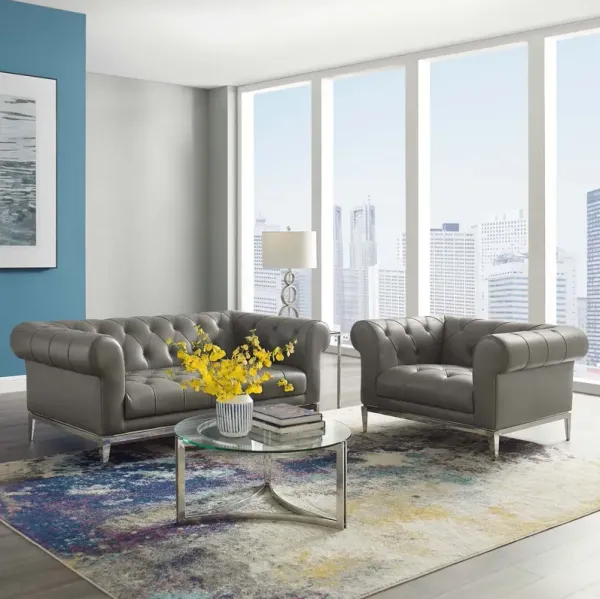You're on the list
By signing up, you agree to receive email marketing.
























Absolutely! Leather living room furniture has historically added a level of sophistication and comfort to interior design, and this shows no fading. Its lasting appeal lies in its versatility, durability, and ease of maintenance, which makes it a perfect fit for contemporary and traditional styles. Designers often turn to leather for its ability to age gracefully. The material develops a unique patina over time that adds character to a space. Leather will fit right in with a sleek, modern look or a cozy, classic ambiance.
When it comes to selecting a timeless color for a leather couch, classic shades like black, brown, and tan are long-time favorites. These colors are ultra-versatile, blending seamlessly with various interior design themes and color schemes. Black leather exudes sophistication and can anchor a room with its bold presence. Any shade of brown, from rich chocolate to lighter caramel hues, radiates warmth and complements both vibrant and subtle palettes. Tan or beige leather couches offer a lighter feel that’s ideal for creating a sense of space and light in smaller rooms or minimalist designs. Choosing one of these classic colors will guarantee that your leather couch remains stylish through changing trends.
The quality and characteristics of leather furniture vary significantly across four primary grades: full grain, top grain, genuine, and bonded leather.
Understanding these grades will help you make informed decisions based on durability, appearance, and budget when selecting leather furniture for your living space.
You're on the list
By signing up, you agree to receive email marketing.